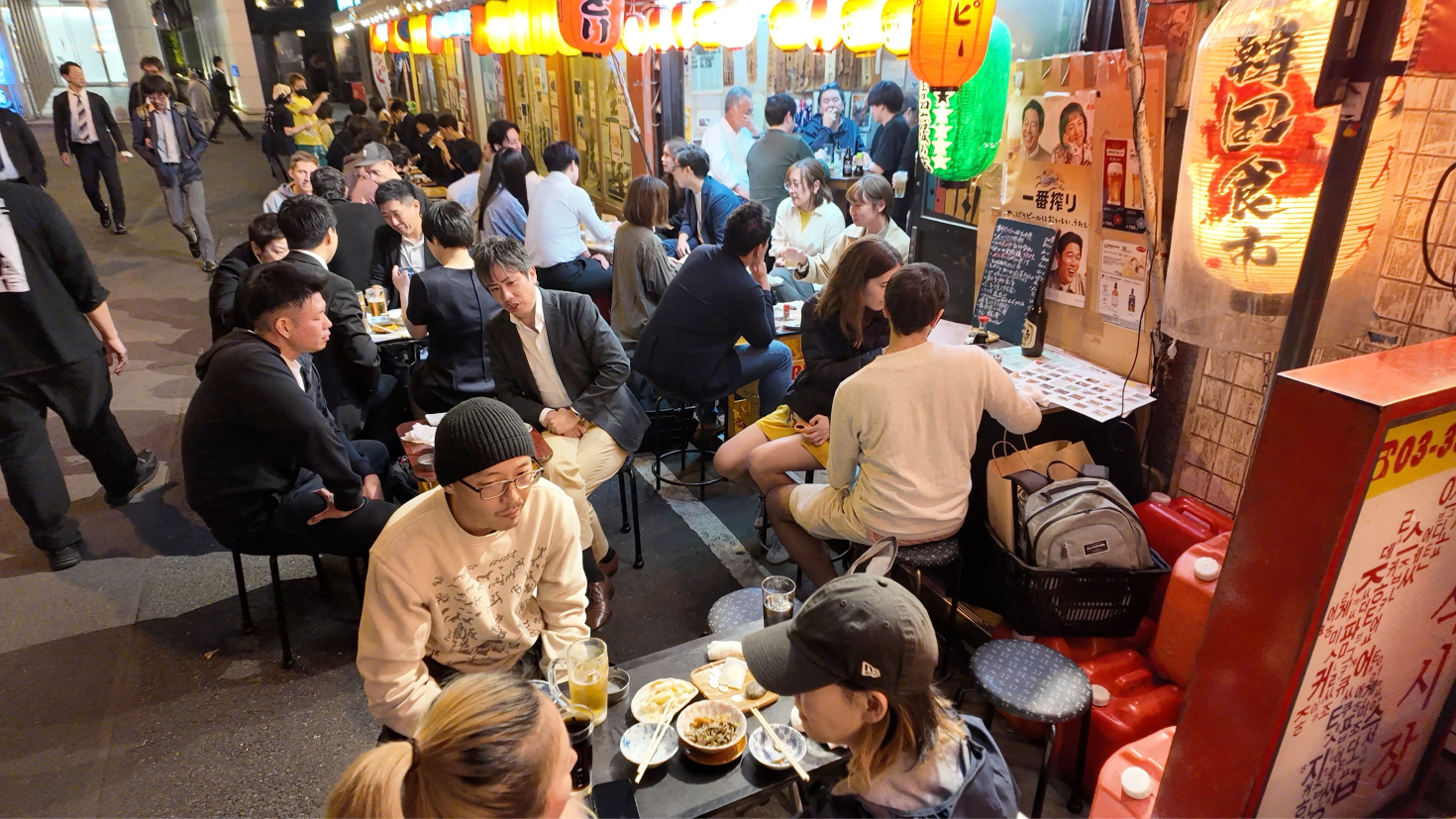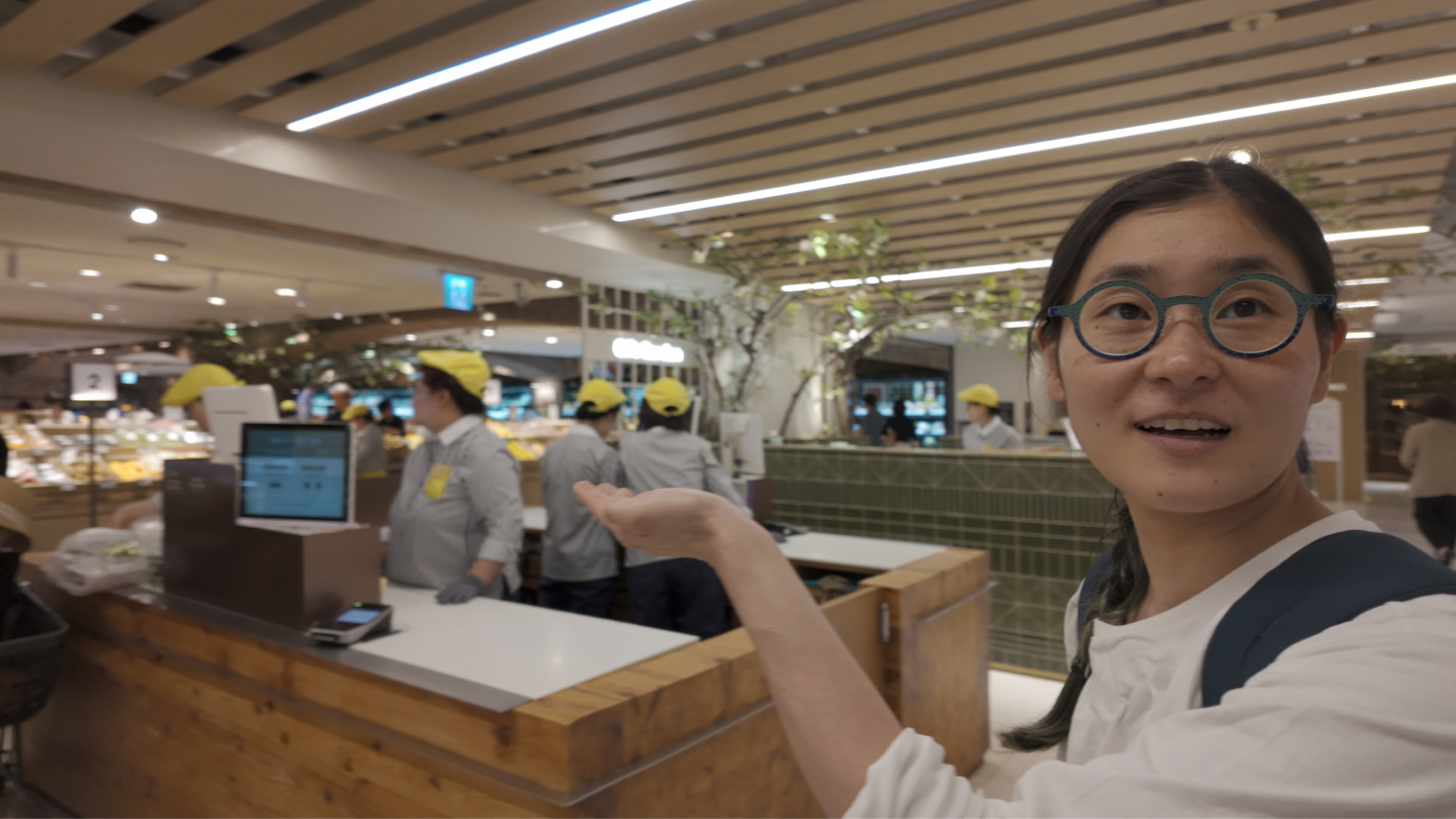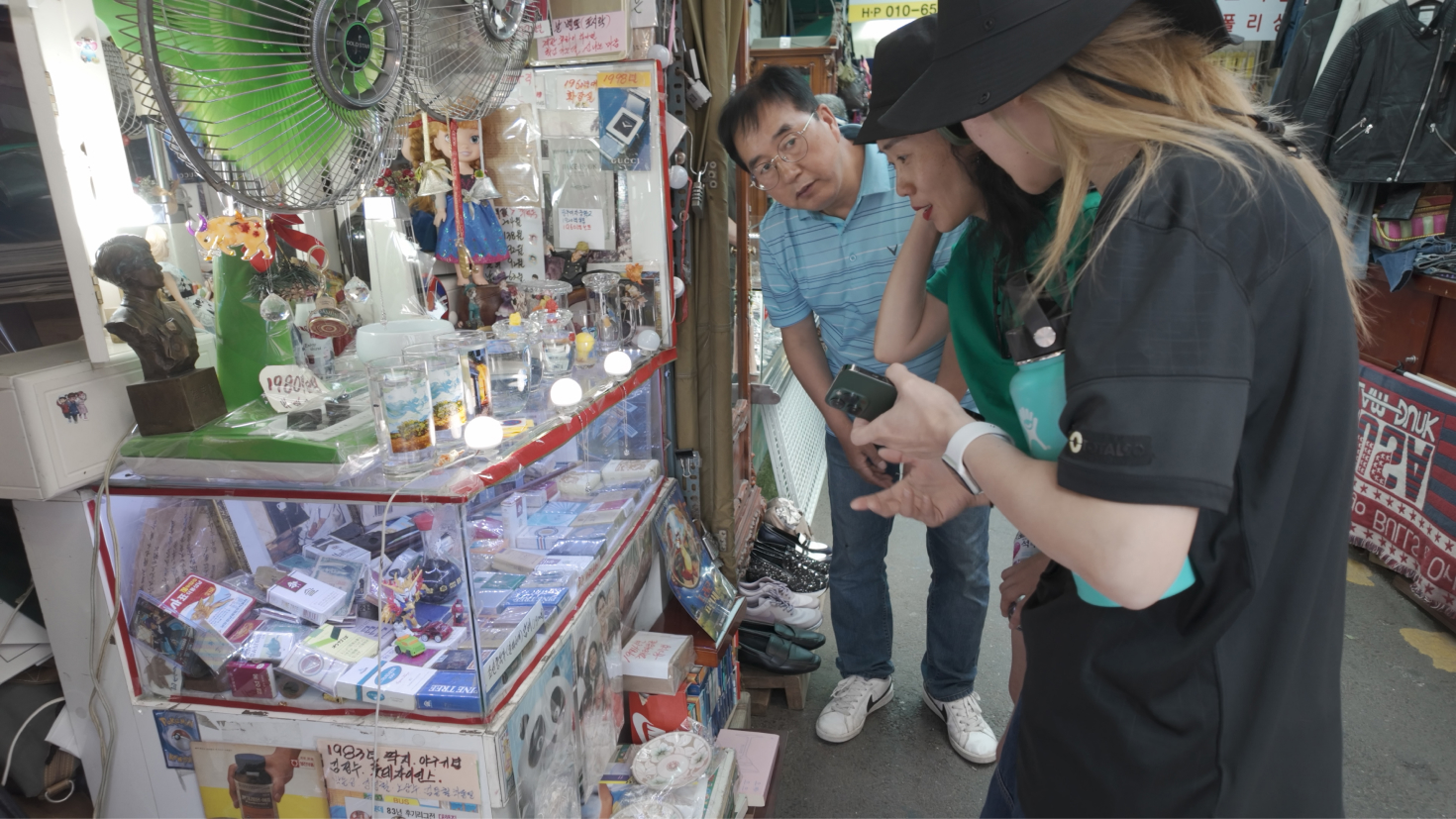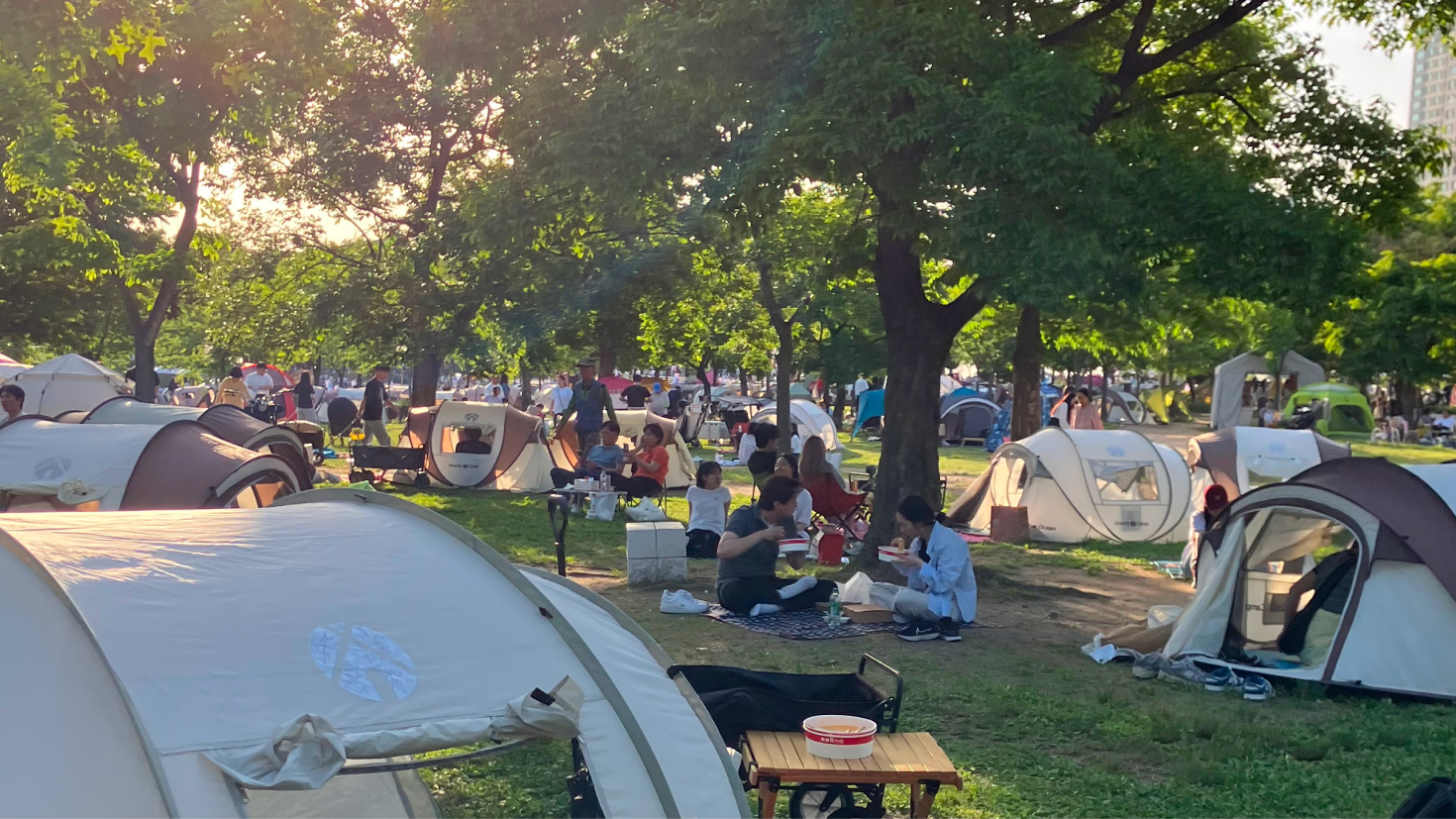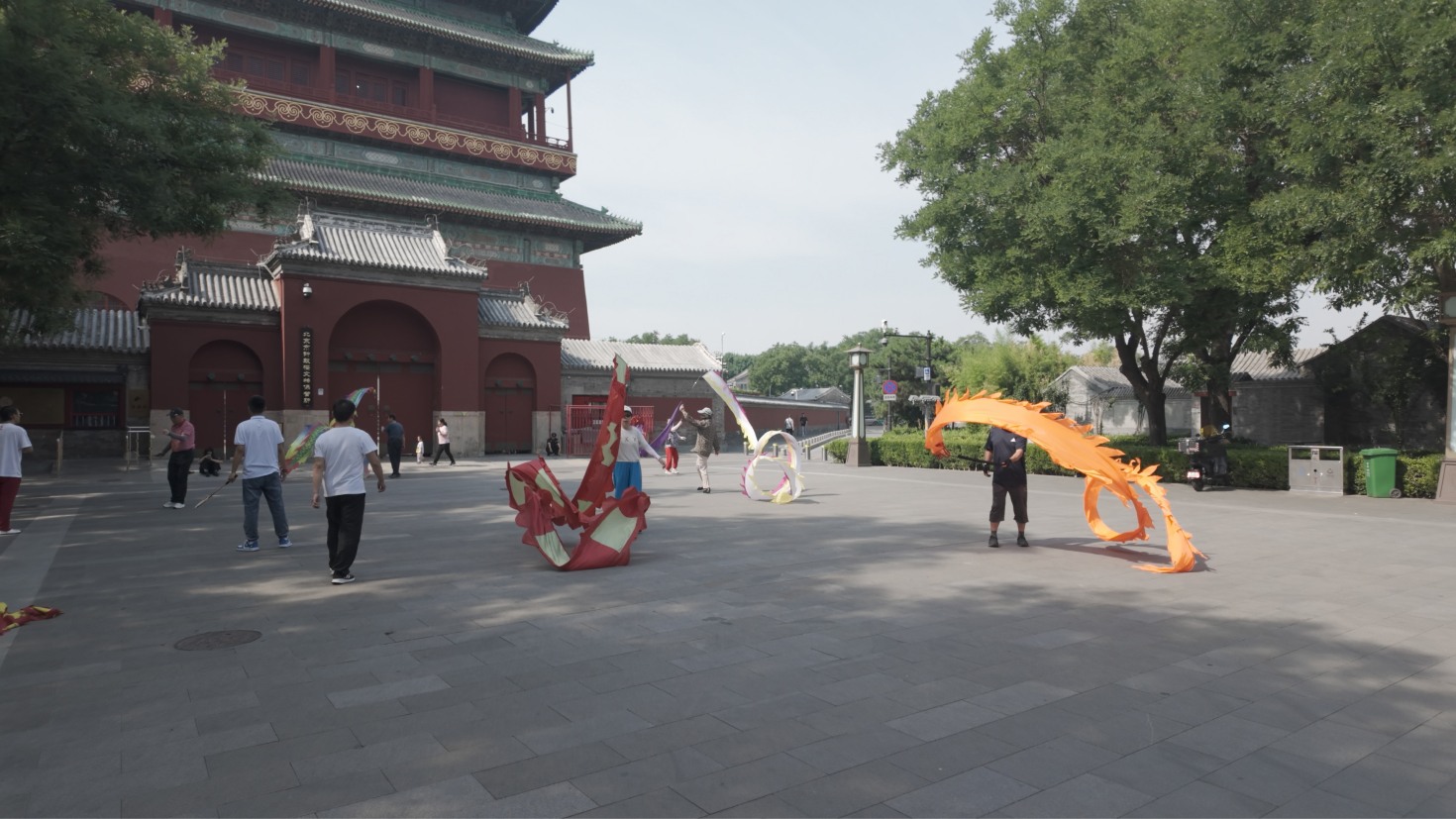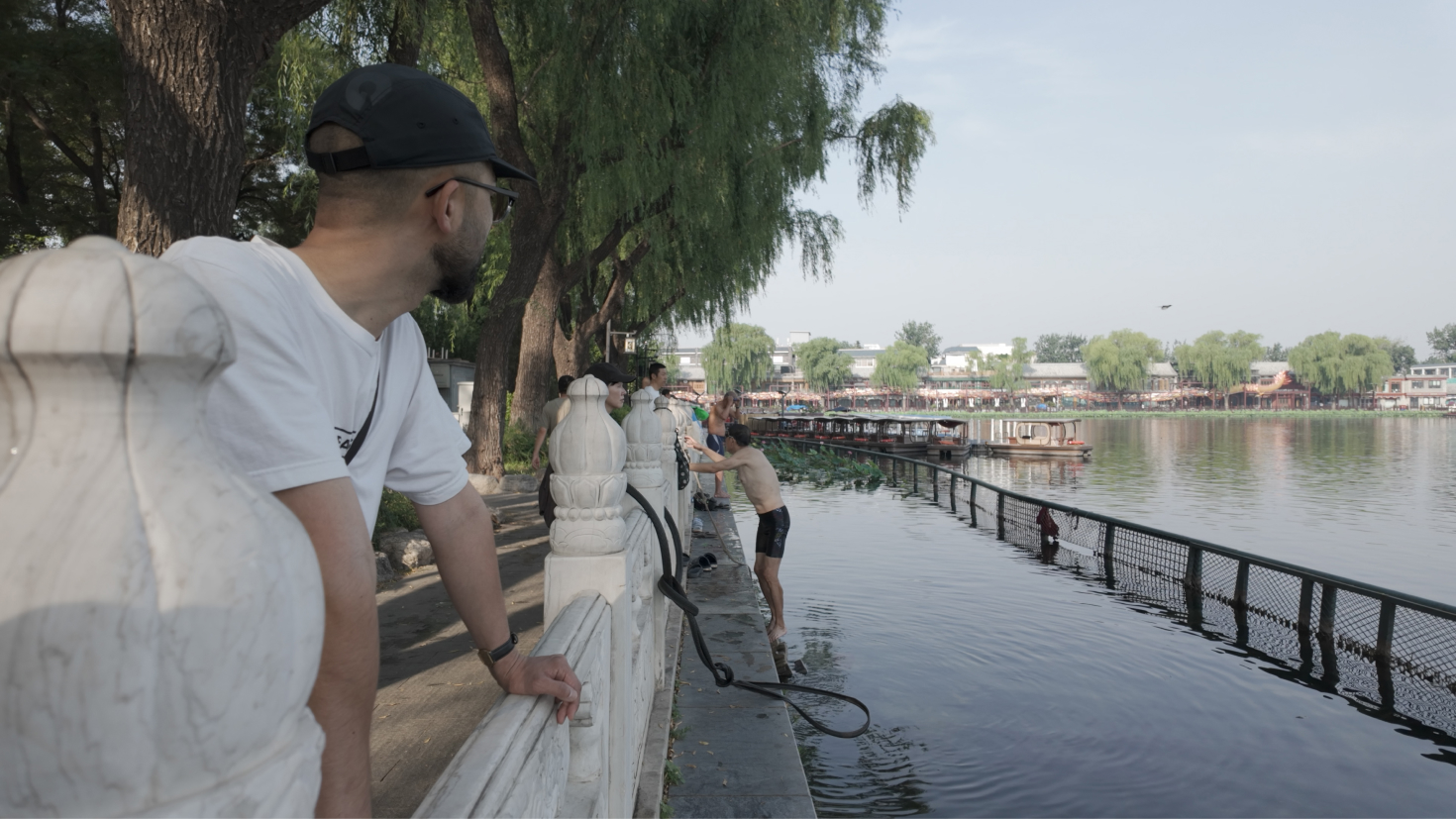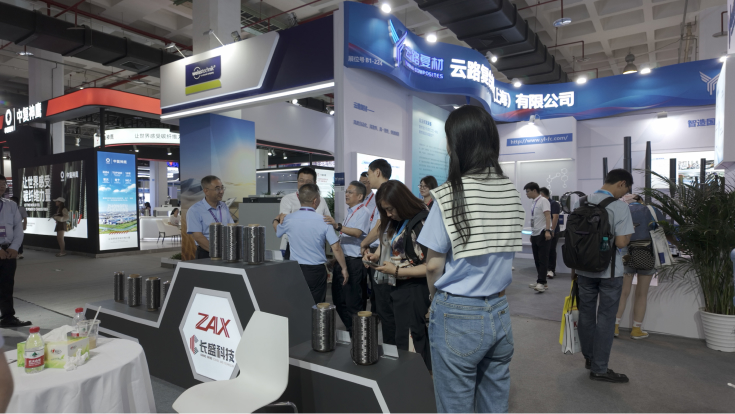Performance
ビヘイビアプロジェクト
by means of body expression with dancers from Japan, China and Korea.
Daikanyama Hillside Plaza
Through a series of fieldwork in Tokyo, Beijing, and Seoul, the six dancers from Japan, China, and South Korea have examined the behaviours from their own perspectives. They will be sharing their observation findings in a presentation format, followed by a performance piece in response to ‘how we want to behave’ through a physical expression.
Process leading up to
the performance and
future activities beyond
April 2024
Kickoff event
Cognitive science researcher Hosoma Hiromichi was invited as a guest to discuss what behaviour is. Together with the audience, we discussed the behaviours that we felt uncomfortable with and the behaviours that we would like to change.
May
Fieldwork with Chinese dancers
Visits to Tokyo and Seoul for one week each. We discussed the social issues behind the behaviour, such as the relationship between society and the individual, as well as gender issues.
June
Fieldwork with Japanese dancers
Visits to Seoul and Beijing for one week each. Through observations in the city, we deeply reflected on personal behaviours such as showing concern for others and being self-conscious.
July
Fieldwork with Korean dancers
Visits to Tokyo and Beijing for one week each. Various suggestions were established from the gap between Tokyo where ceaseless information can be easily accessible prior to the visit as opposed to having the opportunity to uncover Beijing with a limited knowledge.
Analysis and Discussion
While reflecting on the fieldwork, all six dancers examined their own "perspectives" on behaviour through their personal behaviour and various social standards such as social norms, order and manners in their own cities.
14-16 February 2025
Performance
Six dancers from Japan, China, and Korea will share their thoughts from the fieldwork, followed by presenting "how they want to behave" in the form of physical expression.
Documentary
Each process of the project is documented including the fieldwork, discussions and physical form of expression. A series of video documentaries on the themes of "The origins of social behaviour" and "How do we want to behave?" will be distributed.
Demonstrative experiments to change people’s behaviour
Working with corporate companies and local governments, we will conduct demonstrative experiments to change people’s behaviour. We aim to change the society by collaborating with artists/designers and researchers in various fields to carry out activities that transcend the boundaries of research, art and business.
Fieldwork
in three cities
Tokyo
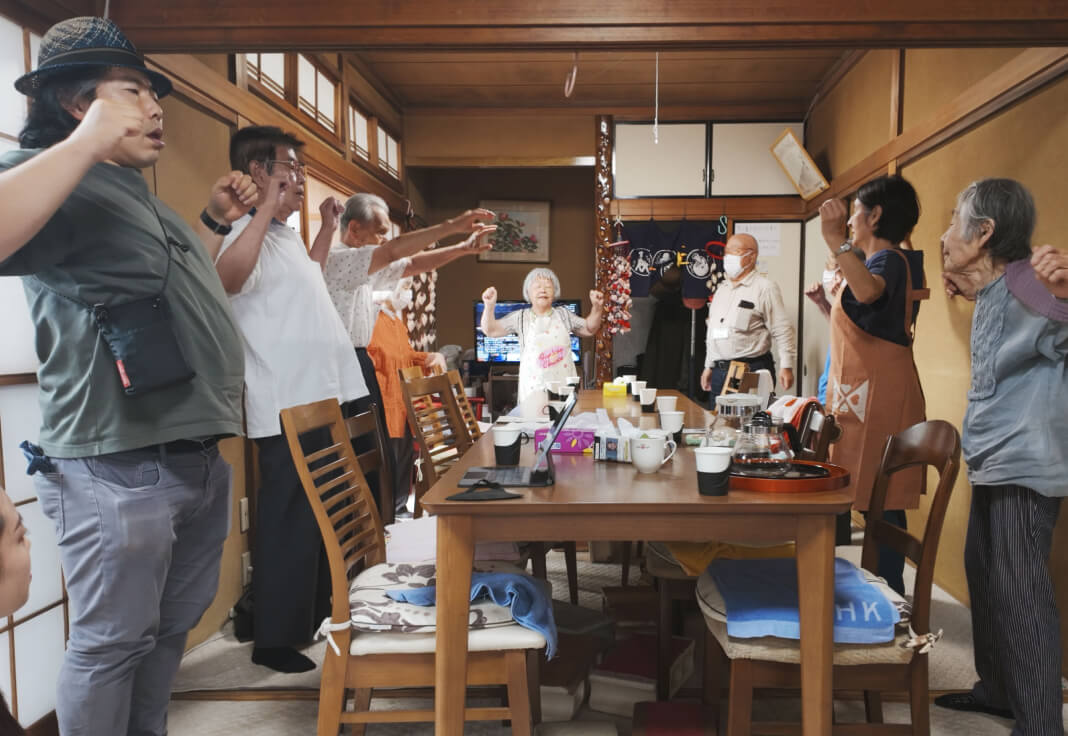
Social order and codes of conduct create behaviours that are appropriate to the situation.
The fieldwork began at 7:30am in Shibuya. Commuters in suits and shirts line up in an orderly manner on the platform and are quietly and uninterruptedly sucked into the train. It was unnaturally quiet on the platform and on the train considering the number of people, as opposed to the bold behaviour of the people in such suits at the bar district of Shimbashi on a Friday evening. We observed the l...
Read MoreSoul
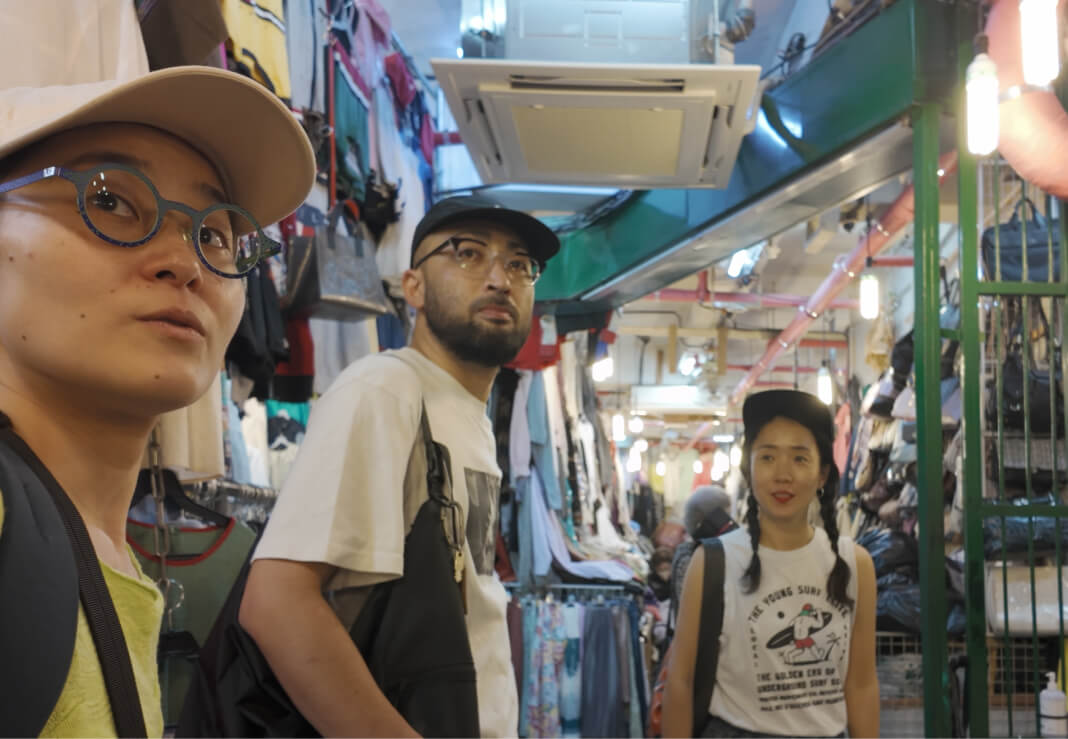
Are we living true to ourselves, or are we just acting out a prepared scenario?
Seoul is a mix of old and new with a large river of Hans that flows through the city centre. The south side of the Han River is undertaking redevelopment with high-rise buildings, however in the old town on the north side, there are areas consist of old buildings such as shopping arcades and multi-tenant buildings. After experiencing a crowded train on the subway, we first visited an old local mar...
Read MoreBeijing
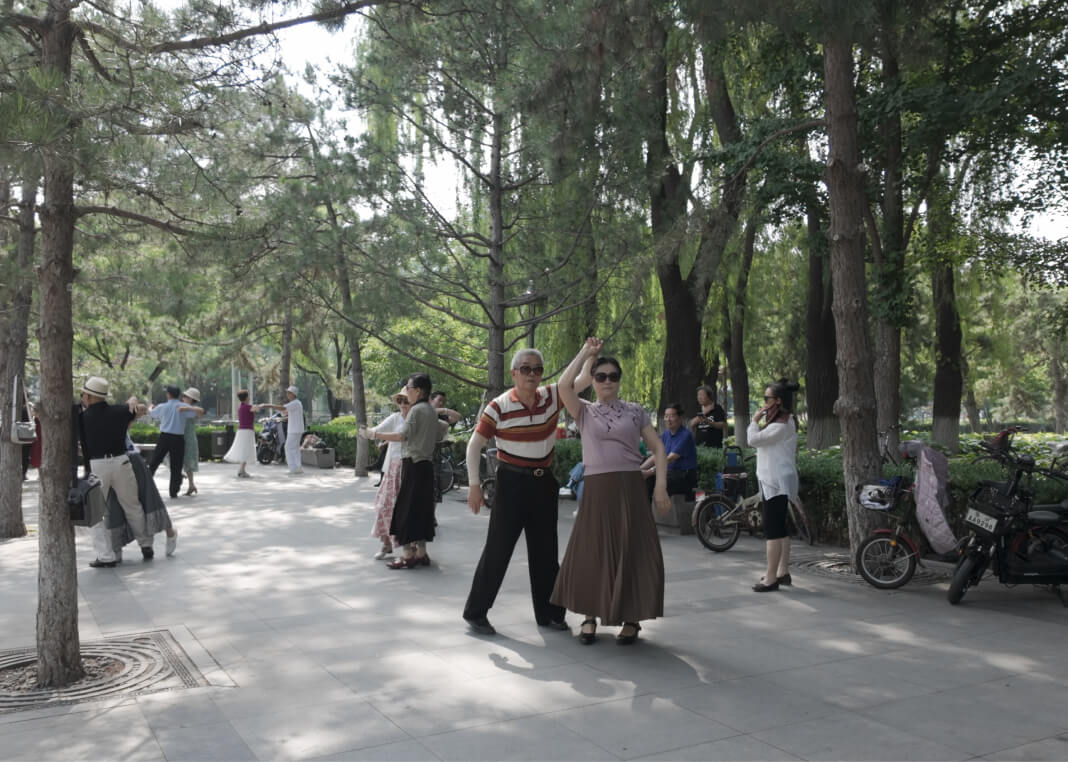
How to behave in a public space - rules first, or agreements first?
In Beijing, the behaviour of people in the park gave us a glimpse into the notion of publicness for people living in Beijing. If there is a spacious area in a park or square, people will gather from morning to night for various activities. For example, a group of several seniors are practicing tai chi next to several groups of people playing badminton. Eventually, flag dancers appear and begin pra...
Read MorePerspectives on
"behaviour" gained
through fieldwork
Shimada Tadashi
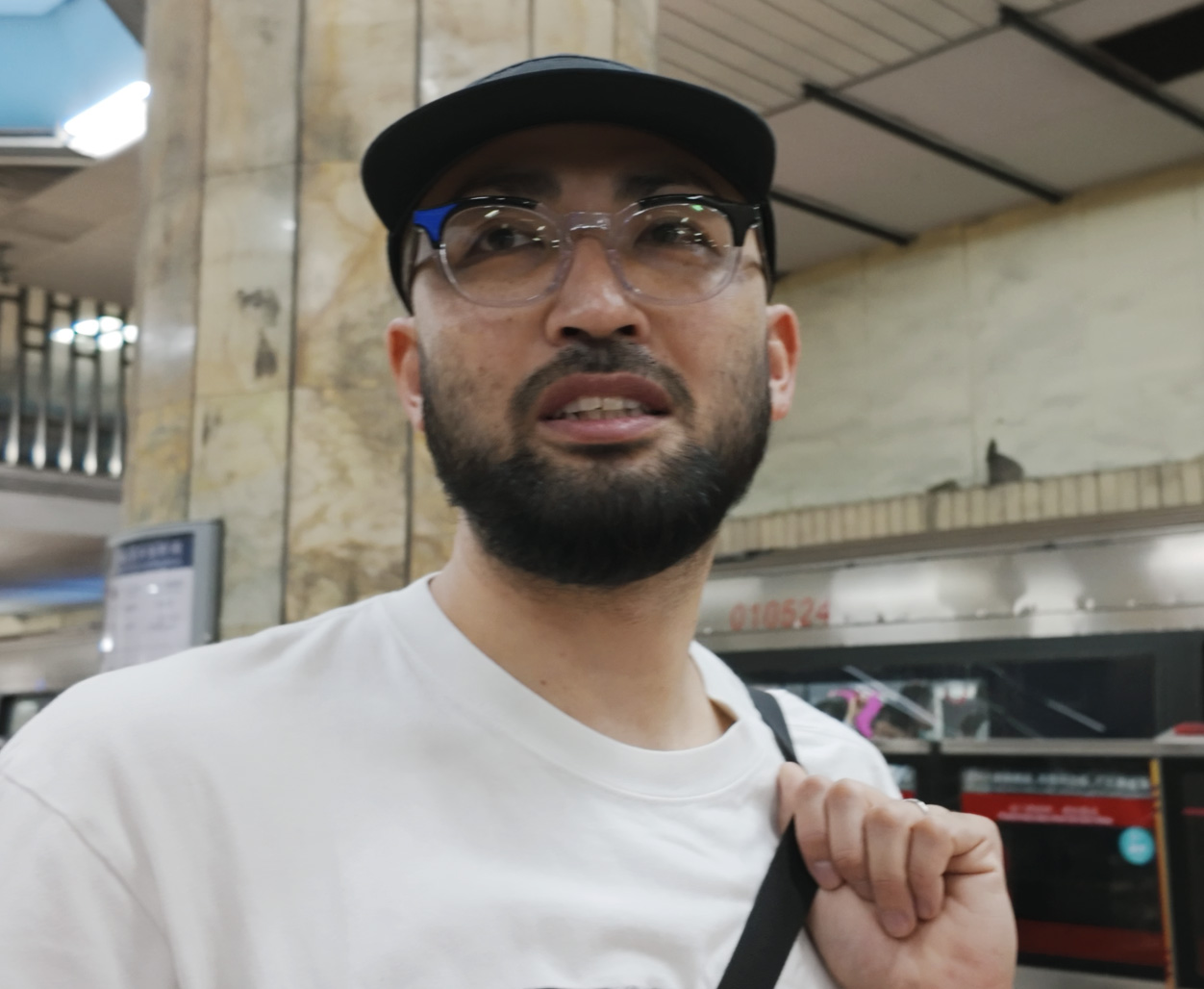
Freedom from social oppression.
When walking on the street, riding the train, walking in the park. I feel that I am conscious of the situation each time and the gaze of others, and act according to the "standard" of how I should behave. I have a desire to be free from rules and constraints, but on the other hand, there is also part of me that restricts myself from what I think is the way things should be. Following standards is an easier way to survive in society, but it also blocks out the train of thought about what you really want to be. I would like to question my body again about the oppression of society and the oppression that I have created.
Kitagawa Yu
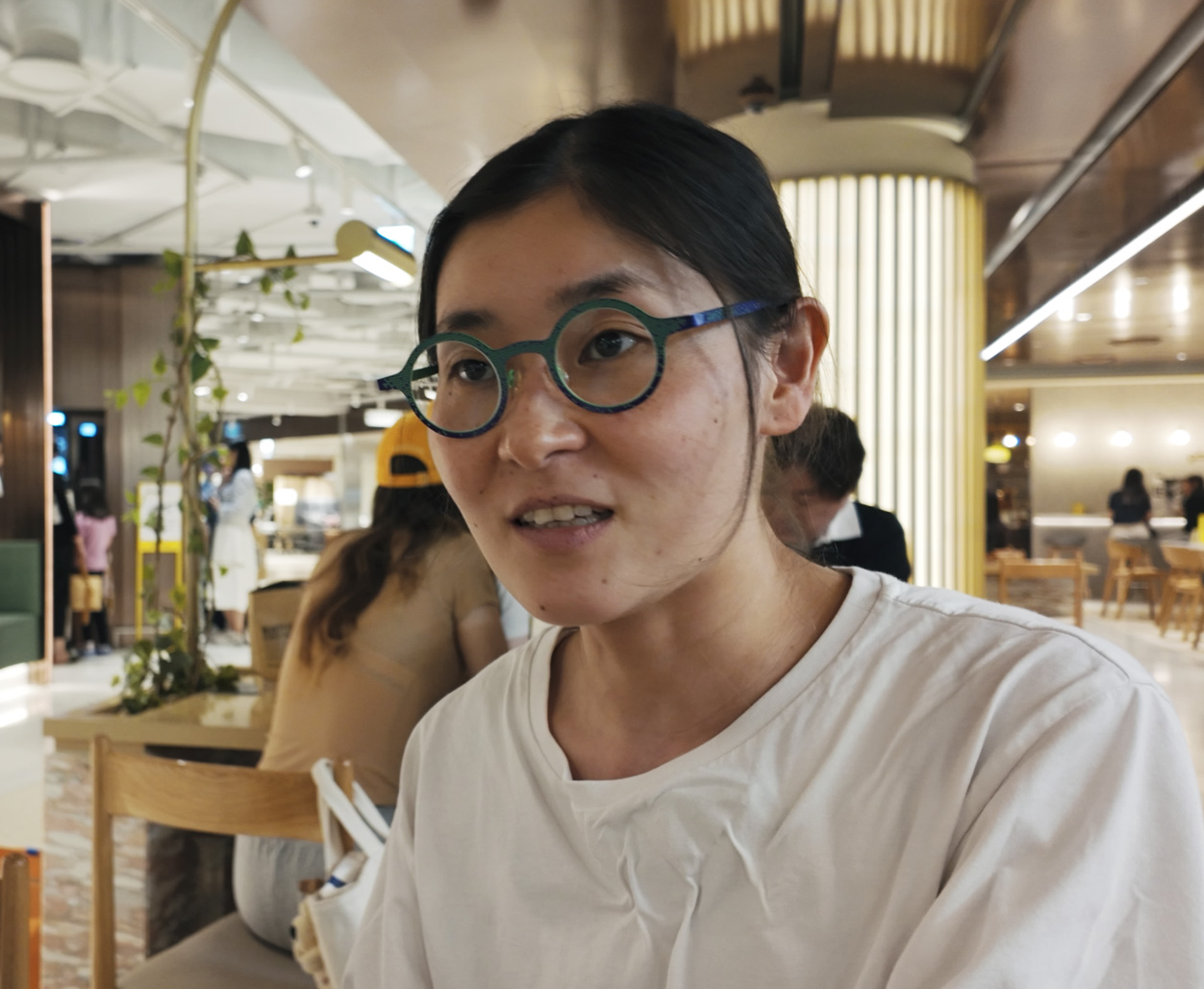
To live as ‘me’ in society.
I was inspired by the people I met in Seoul and Beijing who were able to convey their feelings and thoughts to others. During the two weeks of fieldwork as I travelled along with the project members, I noticed that I often prioritise what the other person is thinking and what they want to do rather than what I want to do. In fact, I wish I could behave more honestly without being too considerate than necessary. But what does it mean to be honest with yourself? If I can play a role in the team and produce good output as a whole, then it’s enough for me.
Ye Hyoseung
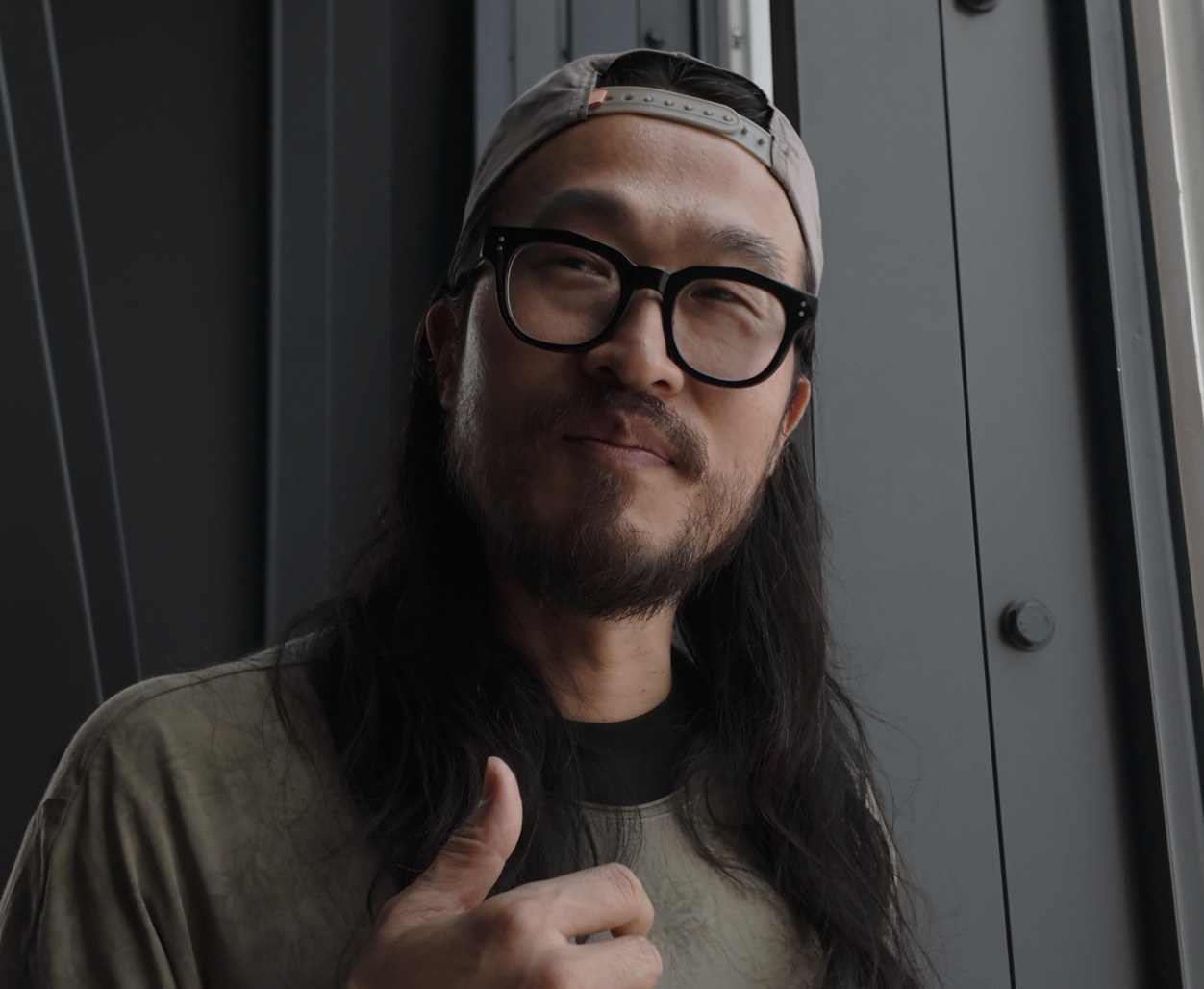
Thinking about my own happiness and the society.
When I was in my twenties, I lived in Tokyo for about a year. As a young person, I remember seeing Tokyo as a vibrant and fashionable city. However, coming back to Tokyo for the first time in a long time, I noticed the change in time which made me wonder about my life in the future. Spending time with my family is as valuable as working with friends and colleagues which I try to maintain a balance between work and personal life. After the age of 50, who do I want my life to be surrounded by and how do I behave in society? Through this fieldwork, I would like to think about the future of my own happiness and that of society.
Na Hyeyoung
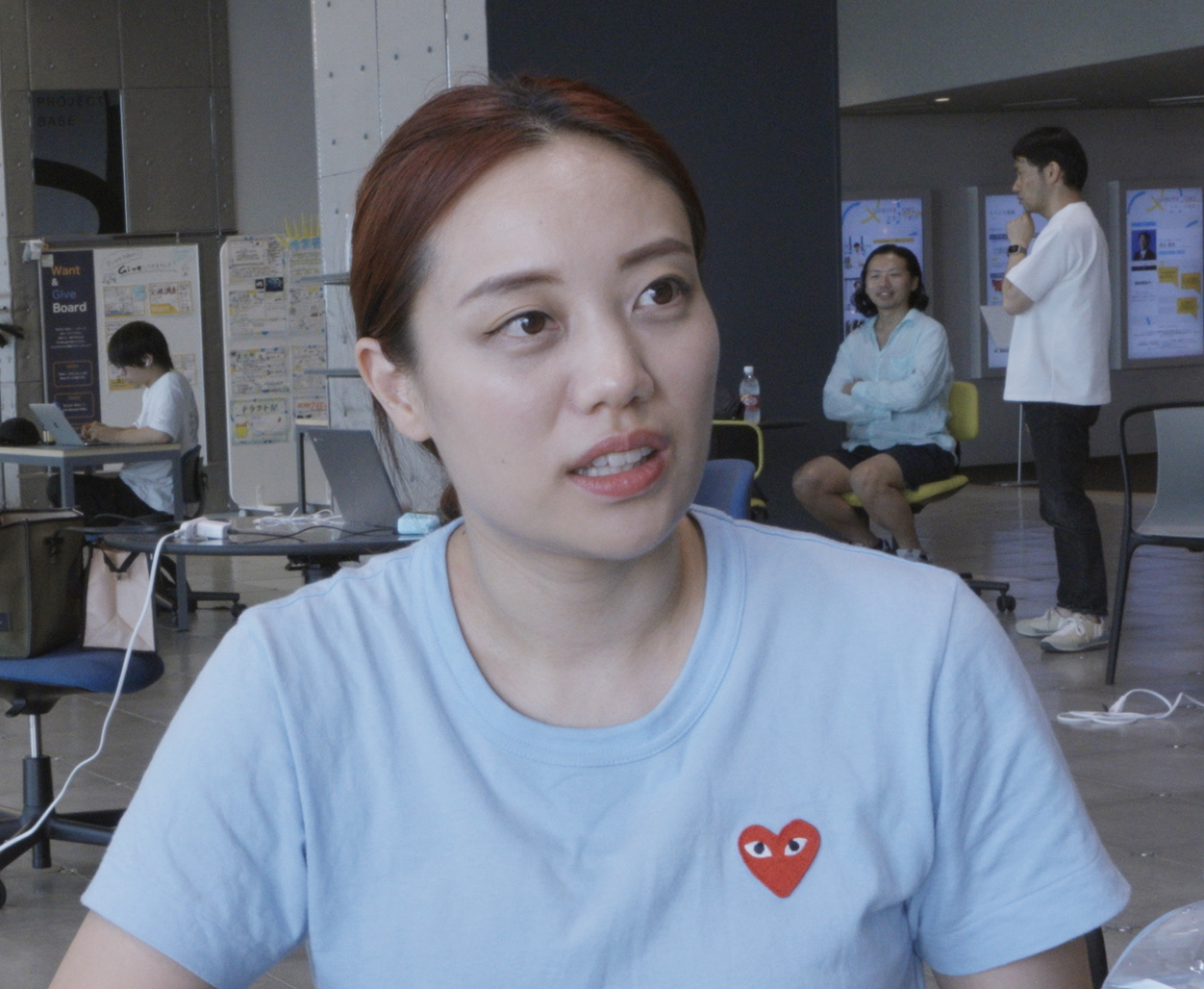
Live honestly and be true to your feelings.
The movements of the people in Tokyo are seemingly in order, however I felt a series of "hidden rules" behind them. Similarly in Korea, there is a "tacit understanding" to be considerate when it comes to age difference. I want to be as free as possible from such restrictions by being honest about my thoughts and feelings and be true to my own feelings. As I observe how people communicate in Tokyo and Beijing, I want to focus my interest on the behaviour of expressing emotions.
Wei Man
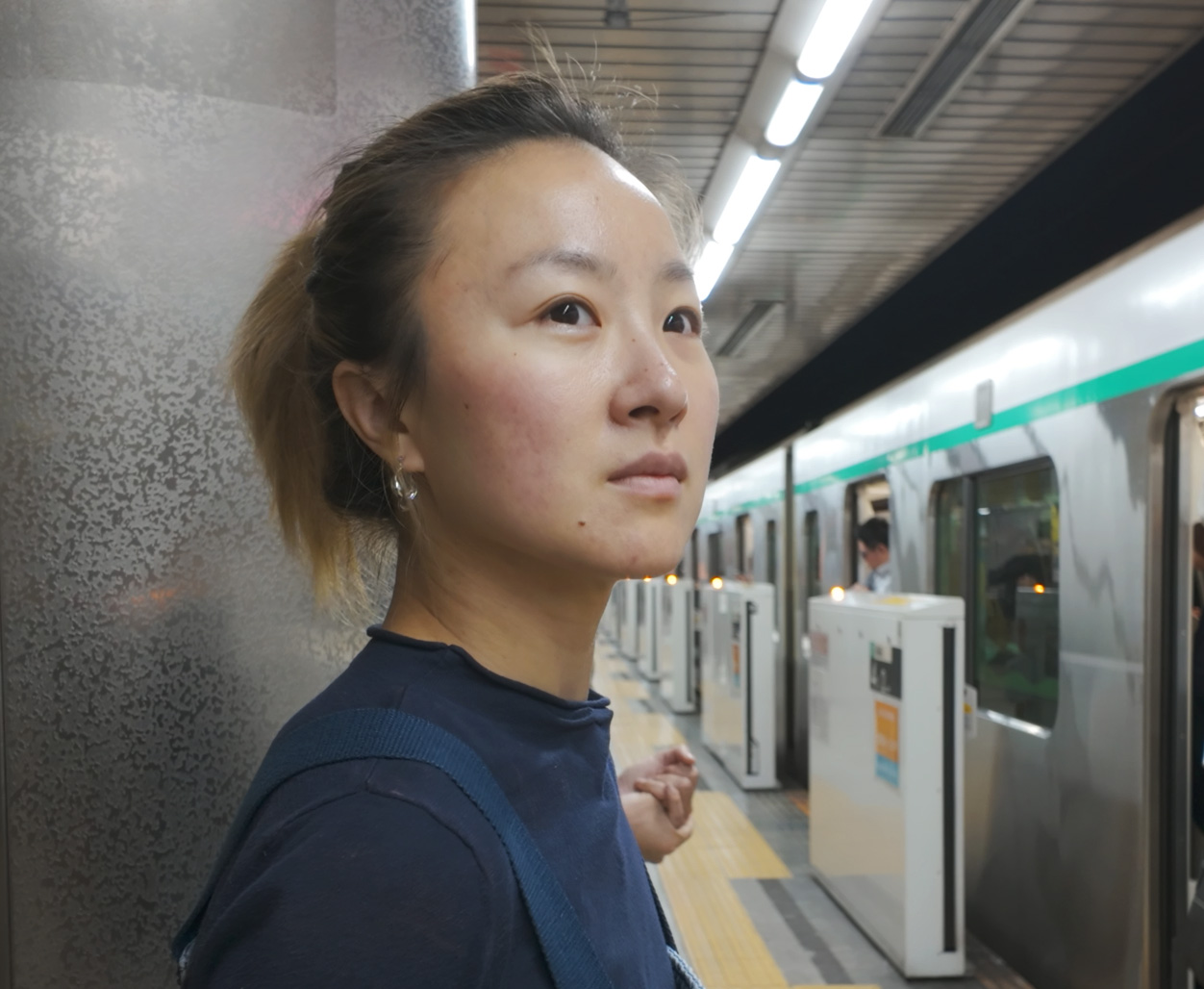
To protect the dignity of the individual in society.
Since we cannot live without belonging to society, what does it mean to live and to be human? In the process of growing up, people gain a sense of fulfilment by playing a part in society such as families, schools, and companies. On the other hand, some individuals may suffer from the pressure of demands in society, such as working too much causing to harm their bodies and minds. What should we do to value the individual in society? I would like to focus on the behaviour between society and the individual.
Wang Jiaming
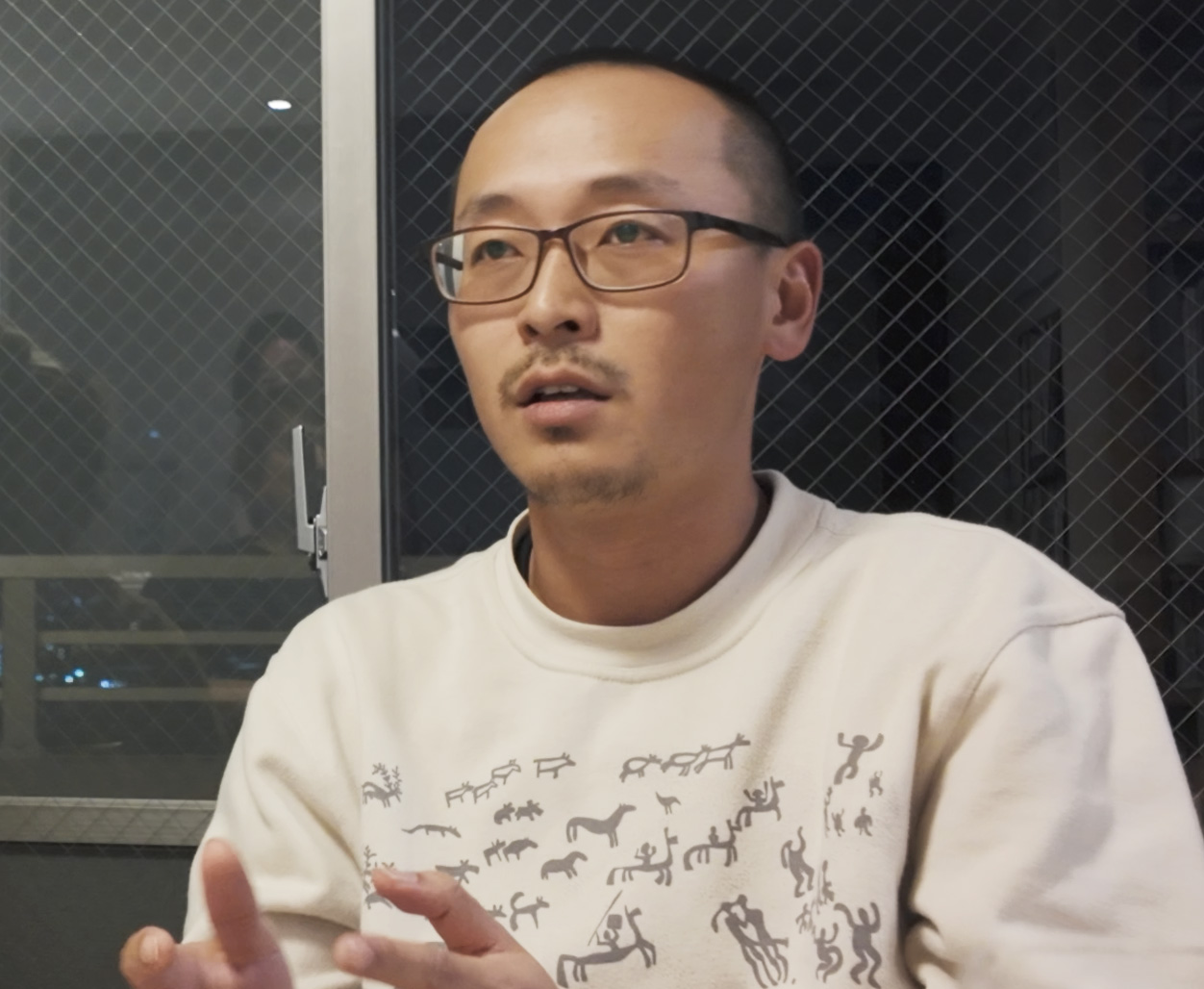
Escape from the code embedded unconsciously in our minds.
The morning rush hour in Tokyo: a large number of people are sucked into the train all at once in an orderly manner like a school of fish. We are naturally bound to build ways to behave in society based on our education from an early age, the media influences, and other experiences through our lives. It is somewhat like a programme, or a code installed in our body. I want to work towards discovering the code embedded unconsciously in our minds and how to break free from it.
information
Dates
2.14.Fri 19:00
2.15.Sat 16:00
2.16.Sun 14:00
After talk
Dancers from Japan: Shimada Tadashi, Kitagawa Yu | Music: Nukata Masashi
Dancers from Korea: Ye Hyoseung, Na Hyeyoung | Interpreter: Shimada Mei
Dancers from Chine: Wei Man, Wang Jiaming | Interpreter: Ikeda Lily Chenran
Venue
Hillside Terrace, 29 Sarugaku-cho, Shibuya-ku, Tokyo 150-0033, Japan
3 min walk from Daikanyama, 7 min from Nakameguro and 10 min from Ebisu Station.
On-site Parking is available for 600 yen per hour and 300 yen per 30 minutes thereafter.

Tickets
tickets on sale | 2025.1.6Mon
Reservations required. Children of elementary school age or younger are free of charge if accompanied by a parent or legal guardians.
Contact : bh-info@architectingstories.com | @thebehaviourproject
Project members
Direction: Daisuke Nakazawa / Choreography & Performance: Shimada Tadashi, Kitagawa Yu, Ye Hyoseung, Na Hyeyoung, Wei Man, Wang Jiaming / Music: Nukata Masashi
Stage Management: Kawachi Takashi / Video Direction & Documentation: Mikami Ryo / Sound Direction: Inarimori Takeshi / Lighting Direction: Miura Asako / Costume & Styling: Fujitani Kyoko / Graphic Design: Nambu Ryuichi, Hayashi Minori / Website Production: Sukegawa Takaaki (Penne Co.) / Documentary Edit: Miyai Yu, Miki Ayaka / Production Management: Iwanaka Kanako, Takizawa Yuko / Research Support: Hosoma Hiromichi, Mitsuishi Kosei, Sawa Takashi, Yamamori Yuki, Takeyama Masanao, Toyama Aki, Fukuda Toshiaki, Tachibana Shoko, JGC Japan Corporation, Uehara Takuma, Uchida Ayaka, Authorised NPO Suzunokai, Tsuji Mariko, Hasegawa Mariko, Hasegawa Daisuke, Yamada Kaichiro, Park Jinyoung, Lavender Bingqing Zhao, Ma Zheng, Jeffrey Zhang, Satomi Yusuke / Filming Support: SHIBUYA QWS / Special Thanks: Contrail, Kirari Fujimi Cultural Centre of Fujimi City, Momonga Complex / Subtitle Operation: Sung Nam HAN / Event Management: Miki Koizumi, Yasuhiro Kondo, Yuriko Takeda, Yuri Miyazaki, Tomoko Sekine


